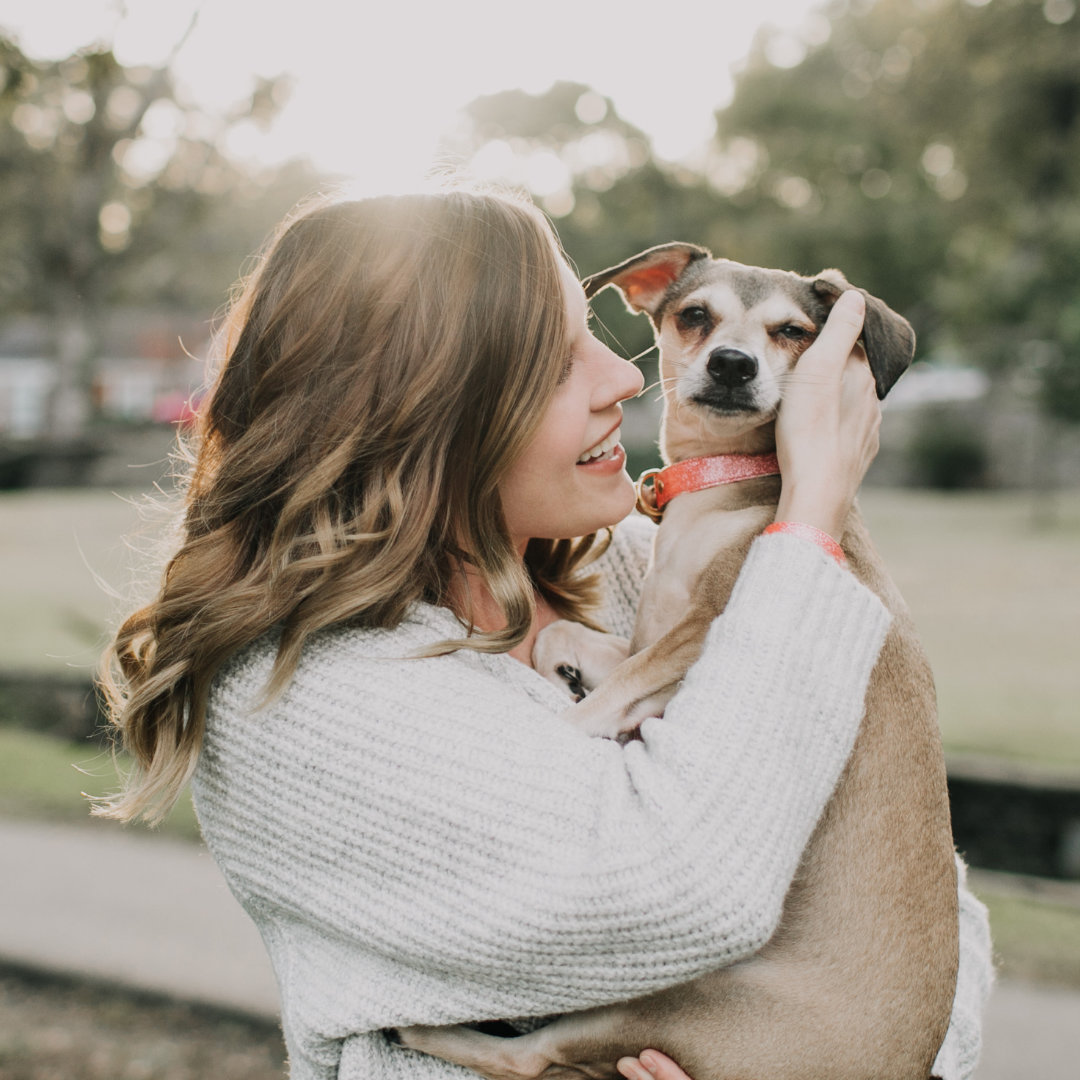Probiotics. You’ve heard about them. You’ve read about them. You know they’re good for you and if you’re reading this, you’re about to know they’re great for your dog. But maybe you’re asking, “Can dogs take human probiotics?” since it seems like it would make sense, right? It sure does, but read on to learn more about whether your dog can take human probiotics for human consumption.
Probiotics for everyone!
You hear or read about natural probiotics everywhere and it’s because science is continually linking healthy gut to good overall health (including good brain health) and you know what keeps guts in good shape? You guessed it! Probiotics.
And while the push for human probiotics consumption has rightly risen through the roof, the same can be said for our pets.
Again, with good reason, since good health begins in the gut of our furry friends too. Probiotics for dogs are key to good dog gut health, just like they are to good human gut health, so it makes sense you should both be taking probiotics. To keep your dog healthy, you can give him probiotics on a regular basis to promote everyday digestive health, optimal nutrient absorption, and overall well-being.
But can you offer your dog human probiotics instead of probiotics for dogs? Should dogs take human probiotics instead of dog probiotics? Good questions!
Help—I don’t know what probiotics are!
No worries if you’re not sure of what probiotics for dogs even are. You can learn all about them on our blog, but in a nutshell, probiotics are healthy, good bacteria that live in our digestive tracts and help our digestive systems keep our guts healthy. They keep harmful bacteria from taking over our gut, and they keep you from experiencing a host of digestive issues. This good bacteria fuels your microbiome, which in turn connects with and drives your brain, and probiotics for dogs are basically warriors for your gut health.
But First–Prebiotics
Prebiotics are non-digestible food components that promote the growth of good bacteria in the gut–the probiotics. Unlike probiotics, however, which are live beneficial bacteria, prebiotics are food. Prebiotics help probiotics flourish and maintain a balanced gut microbiome. A balanced gut microbiome is crucial for a dog’s overall health, as it plays a pivotal role in nutrient absorption, immune function, and even the production of certain vitamins.
Among the many types of prebiotics, inulin and xylooligosaccharides (XOS) stand out as powerful prebiotic ingredients for dog gut health. Inulin often comes from plants like chicory root or agave, and is a soluble fiber that beneficial gut bacteria love and easily ferment. This fermentation process is super important for gut health because it produces short-chain fatty acids, which have been linked to various health benefits like inflammation reduction and gut lining integrity. XOS, comes from from plant materials like corn cobs and sugarcane bagasse. When your dog eats things that have XOS in them, they’re working to promote the growth of bifidobacteria. This is a type of beneficial bacteria that’s essential for healthy gut function in dogs. Both inulin and XOS support the continued growth of healthy gut bacteria and a balanced gut microbiome. They may help in improving your dog’s digestive health, and that means they may be able to absorb nutrients better and have stronger immune health.
So why should my dog take probiotics?
Prebiotics are key for ensuring that the probiotics in your dog’s gut are fed well and plentiful. And this is important because dog probiotics supplements may keep your dog from dealing with conditions like:
- Obesity
- Intestinal inflammation or Irritable Bowel Syndrome
- Dog diarrhea
- Liver disease
- Mood and behavior disorders
- Skin problems
- Gas and bloating
- Bad breath
- Allergy symptoms
- Yeast-associated disorders, such as ear infections
- Bladder infections
- Urinary tract infections
- Stress (may cause diarrhea)
- Dietary changes (or your dog eats something he or she shouldn’t)
- Aging
- Medications, such as antibiotics and long-term steroids kill good bacteria and often set chronic diarrhea in motion
- Parasites
Preventatively, probiotics added to your dog’s diet daily may keep those issues and a ton more at bay. These beneficial microorganisms are also important when your dog is dealing with an illness, on antibiotics, eating poorly or has gotten into something he shouldn’t have. All of those situations can bring about problems in your dog’s gut, and a healthy microbiome will reduce or eliminate symptoms and keep your dog’s immune system stronger.
So probiotics are good for you AND your dog, but there is a reason there is such a thing as dog probiotics and different human probiotics.
But can dogs take human probiotic supplements then?
Technically, there’s nothing about human probiotics that should be a problem for your dog.
But why would you give your dog bacterial strains that haven’t been tested for efficacy in your dog when there ARE canine probiotics that have been found to be beneficial to HIS gut flora?
Why dogs shouldn’t take human probiotics
The main reason is that even though dogs and humans can both benefit from probiotics, your dog’s gut has a different community of beneficial bacteria than you do. According to Harvard Medical School, there are hundreds and hundreds of different probiotic strains. What may be best for our human gut may NOT be best for our dog’s gut. In fact, many dogs may experience symptoms like nausea, vomiting, diarrhea or constipation when you give them human grade probiotics. Pretty aggravating when that’s likely why you may have been giving him the probiotic supplement anyway. Dog-safe strains of probiotics are known to be not only compatible with a dog’s digestive system, but beneficial as well.
Are human probiotics harmful to dogs? Probably not if you’re in a pinch, but are they the best dog probiotics supplements? No, they’re likely not. You want to use dog supplements that have been studied and specifically designated as helpful for your dogs.
How to find the best dog probiotics
Just like the market for human probiotics has exploded, so has the market for dogs’ probiotics. Finding the best dog probiotics can be hard in a saturated market.
So what should you look for in dog probiotics?
The Bacillus coagulans strain is a really effective bacterial strain for many different digestive conditions–acute diarrhea antibiotic-induced disruption, giardia, IBS or more. Bacillus subtilis strains are also good in helping relieve digestive conditions, and both of those strains are unique in that they’re hardy, spore-forming bacteria.
This means that when these live bacteria go through your dog’s digestive tract, they’ll be able to withstand the harsh acids of your dog’s stomach and digestive juices and make it to their intestines where they’ll form more and more spores–a happy colony of little colon troopers, if you will, ready to battle whatever comes at your dog.
Lots of dog foods will tell you that they include dog specific bacteria but the truth is they’re not strains that make it through the extreme heat process that dried dog kibble undergoes and so you’re basically wasting your money thinking your dog’s diet is providing probiotics. They’re pretty much dead on arrival in your dog’s intestines.
That’s even more more reason you want to supplement with probiotic strains designed for dogs specifically.

Probiotics work best with consistency
When it comes to dog probiotics, staying consistent is super important. Regular dog foods are good, but often dog food doesn’t offer everything to keep our dog’s gut bacteria in tip-top shape. That’s where probiotics come into play. Now, not all dog probiotic supplements are the same. For dogs, Bacillus coagulans and Bacillus subtillis are some of the best picks.
So, why these two? Bacillus coagulans is awesome because it can survive the dog’s stomach acid, making sure it gets to the gut where it’s needed most. Once there, it helps keep everything balanced and can even help with tummy troubles. Bacillus subtillis is another star. It’s naturally found in the soil and is known to boost a dog’s immune system. When these two are in a dog’s food, they work together to keep a pup’s gut health in check.
Now, here’s the thing: grabbing any human supplement or random probiotic foods won’t do the trick. They might not have the right strains our dogs need. It’s like giving them the wrong tool for a job. Dog-specific probiotics make sure we’re giving them what’s best for them. And, just like with anything else, switching it up all the time can confuse their system. So, for healthy dogs, it’s all about finding the right dog probiotic supplements and sticking with them. Consistency and the right stuff make all the difference!
Why Bernie’s Perfect Poop has the perfect probiotics for dogs
The number one reason Bernie’s Perfect Poop has the best probiotics for dogs is because it was designed for Bernie and his sister Lady! We’re a real family, and they’re our real dogs! We only want the best for them! We knew that gut health was important so we were giving Bernie and Lady prebiotics, probiotics, digestive enzymes and fiber with every meal. But that cost a ton and took a lot of work.
And that’s how Perfect Poop was born! We worked with industry leaders to design the perfect formulation and that’s just what you get in each bag. We use Bacillus coagulans and Bacillus subtillis because they’re hardy and they get into the gut–we don’t want you wasting money on probiotics your dog won’t even benefit from!
We also added in premium fiber, prebiotics (you know those probiotics have to feed on something, right? Don’t let them starve!) and digestive enzymes for a 4-in-1 supplement that dogs find delicious!
So, can your dogs take human probiotics?
Technically yes. But why would you waste money on human probiotic supplements that may not be best for your dog’s gut health when you can try one of our two delicious recipes with no risk? We know that Perfect Poop is good for your dog’s gut health and that he’s going to love it, but we have a money-back guarantee so you don’t even risk anything.
Except your dog having the best gut health and perfect poop he can.
Which we think is a pretty great reward!


